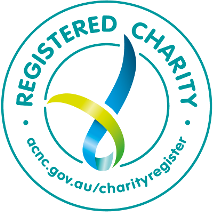 Mental health in sport is now far more openly discussed – behind closed doors and in public. But there is still more to be done to better educate athletes on the benefit of seeking help when dealing with personal issues during their sporting careers.
Mental health in sport is now far more openly discussed – behind closed doors and in public. But there is still more to be done to better educate athletes on the benefit of seeking help when dealing with personal issues during their sporting careers.
Crossing the Line founder and MD Gearoid Towey believes that many athletes still try to push through problems privately, due to a “legitimate” fear that doing otherwise could compromise their selection or their future in sport.
Towey will be joined by a host of current and former athletes and sporting experts to discuss mental health and athlete wellbeing at the third Crossing the Line Summit, at the EY office in downtown Sydney on Friday, November 10.
The danger of bottling up mental health problems
Towey, an Irish former world rowing champion who retired after his third Olympics – in Beijing, 2008 – says bottling up personal issues is “not sustainable” for athletes and can impact their performance and their life after sport.
“On a positive note, over the past 12 to 18 months, I’ve noticed that more people are talking about their mental health,” Towey says. “Unfortunately, it has taken some horrible events to kick start this discussion, but people are now starting to open up. In 2008 when I retired, nobody really had an idea of what was going on. You would have to search far and wide to get some people to talk about mental health.
“But even now, there is definitely still a trend where, as an athlete, you are not programmed to talk about stuff that is uncomfortable. You think you have to toughen up and get on with it. That’s literally what the mentality is like for a lot of people. I know that is what is was like for me.
“I would just bottle it up, hide it and keep going. And that’s unsustainable, which I know now. It is not something you can continue on with for the rest of your life.”
“That is always going to be the chief issue for athletes: learning to actually talk about the stuff that is going on in their heads and their hearts. When people retire, the chief reason why they go downhill is because they can’t articulate what they are feeling, or don’t want to reach out for help. They think it is a weakness. You are not helping yourself by not asking for help but it is hard to tell an athlete. They aren’t used to doing it.”
Why athletes are afraid to speak out
Towey says one purpose of Crossing the Line is to provide a safe and private place for athletes to seek help confidentially.
Because Crossing the Line is an independent athlete wellbeing organisation, there is no risk of an athlete’s team or organisation accessing any confidential information they share. However, Towey says Crossing the Line is not out to “replace” existing wellbeing programs in sports, but to “complement” them.
“One of chief reasons why athletes don’t disclose personal issues is because they are afraid that their selection will be impacted,” Towey says. “A lot of sports have in-house welfare or wellbeing services and they are brilliant. Our aim is to complement those services, not replace them. It is really good for athletes to have an independent space where they know whatever they say to us is in no way, shape or form going to get back to the coach. This is very important to us … if that gets compromised our whole ethos is scrambled.
“We are independent. We are away from the organisational set-up. Athletes know we are there. They can come and get us any time they want. But they know we are not sitting in a room with their coaches and selectors talking about them. Not at all. It is just between us and the athletes.
“Of course, if there is a crisis situation and the athlete is really in trouble with a massive mental health issue we will want to inform the coach of what is going on, but only with the athlete’s permission first.”
Between a rock and hard place
Towey says Crossing the Line can also assist coaches, too. And he empathises with the situation that coaches are in.
“Coaches are in a really difficult spot. You have got to be the executioner and you have got to be the nurturing developing person.”
“You have got to get your work done … you have got to win medals. We know that sport is a cut-throat world. Winning medals is very tough, and that requires some uncomfortable times. We recognise the coach is in a difficult spot, but what we say to coaches is, ‘You can use us. If you can’t or don’t want to have the uncomfortable conversations … If you have an athlete who is really struggling and you don’t really know how to deal with that, then point them in our direction because we can help handle it.’”
As an example, Towey says if a coach finds an athlete is not responding to their advice, or has misunderstood their message, they can direct the athlete to Crossing the Line.
“We would help that athlete deconstruct what is being said to them and try to turn it into a positive, so the athlete can then respond back to the coach in a constructive way,” says Towey.
“It is great for the athlete because it gives them skills in communication and self-awareness, which can then also help post-sporting career. And, it means the coach can get their job done.”
“We are totally sensitive to the high-performance environment,” Towey adds. “We get it.”
“We understand that these athletes need to go to the limit to win. But we can help them not lose their souls or their minds in the meantime.”
If you are affected by any issues in this article:
Contact Beyond Blue on its website www.beyondblue.org.au or phone 1300 22 4636.
Contact Lifeline on its website www.lifeline.org.au or phone 13 11 14.


